| |  | | | Yemen: A First-Hand Report and Multiple Analyses; Decentralizing Syria By Winfield Myers ● Sep 15, 2025 Smart Brevity® count: 9 mins...2368 words We devote five articles to analyzing the fluid situation in Yemen, beginning with Jonathan Spyer's first-hand report from his recent trip to the area. Michael Rubin's three articles examine both internal developments in Yemen and what is required for more effective U.S. diplomacy. Khaled Alyemany dissects the anti-Houthi coalition in the wake of Israel's recent strike on Houthi leaders. The rest of this issue is devoted to the latest developments in Syria. Jonathan Spyer analyzes Sweida province's Druze population, which in the face of massacres by the central government has "raised the Israeli flag" and thanked the Israelis for coming to their defense. Sirwan Kajjo makes the case for a new, decentralized Syria that respects—rather than kills and suppresses—its minorities. We end with two interviews with Syrians conducted by Aymenn Jawad Al-Tamimi. | | Inside Yemen's Endless War: Frontlines, Houthis, and the Battle for Bab El-Mandeb 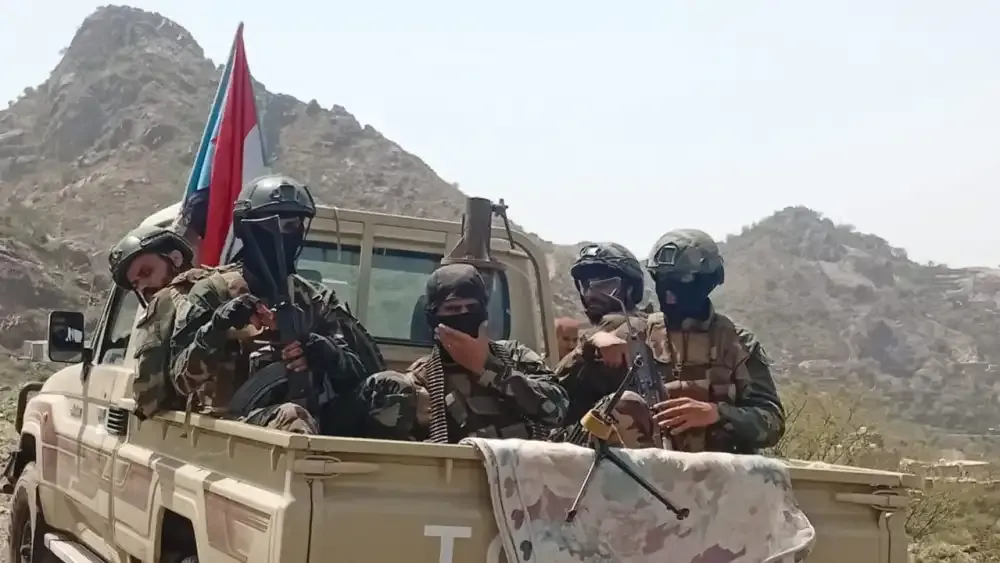 By: Jonathan Spyer The Bab el-Mandeb Strait is a critical battleground between Iran-backed Houthi forces and a coalition of states including the United Arab Emirates, Saudi Arabia, the United States, and Israel. This strategic waterway connects the Indian Ocean with the Mediterranean Sea, playing a crucial role in global maritime trade. Why it matters: Ten to twelve percent of the world's maritime trade navigates through this strait annually. Houthi threat: The Ansar Allah movement, known as the Houthis, persists as a destabilizing force. -
Despite limited missile capabilities compared to Iran, they continue aggressive tactics, including attacks on international shipping. -
Their actions, supported by Iran, threaten global trade routes and regional security. What's next: The Southern Transitional Council (STC) and allies, including the UAE and Saudi Arabia, are pivotal in countering Houthi advances. Strategic importance: The Bab el-Mandeb Strait remains a vital choke point in the battle for control. -
Its narrow passage and dense traffic make it a critical point for controlling maritime routes and exerting geopolitical influence. -
To stand a chance against the Houthis in Hodeidah Province, however, it's clear that they will need a sharp increase in international supply in preparation, and almost certainly external air support in carrying out their offensive. -
The struggle for primacy in this remote, long-fought-over corner of the Middle East is far from completed. To read the full article, click here. | | Why Is the State Department Embracing Yemeni President Rashad al-Alimi? 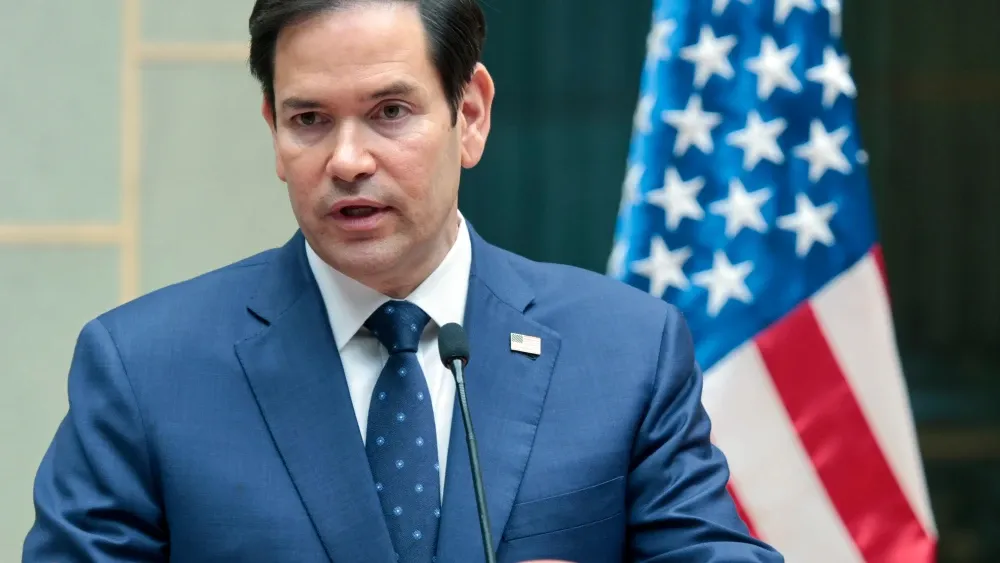 By: Michael Rubin Rashad al-Alimi, chair of Yemen's Presidential Leadership Council, is embroiled in controversy, revealing his nepotism and shifting allegiances. Why it matters: Al-Alimi's appointment of his corrupt brother-in-law as his de facto office director highlights endemic governance failures. Diplomatic gamble: Despite clear signals of mistrust, the U.S. still grants Rashad lower-level meetings, perhaps seeking to maintain a diplomatic foothold in Yemen. -
However, his participation in summits condemning Israel, while ignoring Iranian hostilities, reflects poorly on Yemen's international stance. Absentee leadership: Al-Alimi's preference for Riyadh over Yemen further questions his dedication and legitimacy. -
If Rubio's team wishes to receive a Yemeni representative, they should receive one who chooses Yemen over Saudi Arabia or Iran. -
If Rubio wants to fulfill Trump's mandate that regional states should take responsibility for their own problems, shutting the door on Rashad would send a message far more resilient. To read the full article, click here. | | ICYMI: "Turkey's Puppets in Damascus" with Efrat Aviv 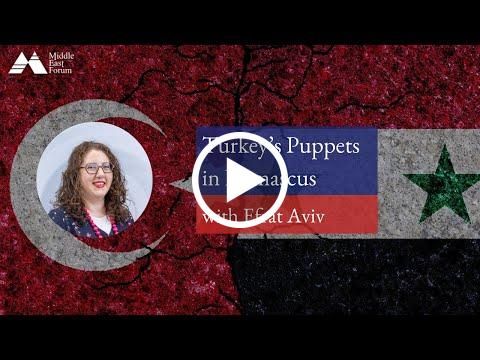 The dramatic fall of Bashar al-Assad's regime in late 2024 promised an end to decades of tyranny. The new government of the Islamist Hayat Tahrir al-Sham (HTS) movement, however, appears to be in the process of reshaping Syria into a Turkish satellite. The new government is sidelining the U.S.-aligned Kurds and igniting sectarian strife in the south and west of the country, under Ankara's shadow. Turkey, meanwhile, is building a military infrastructure in Syria, while maintaining control over its own client militias. What perils await the West if Turkey's grip tightens over the Levant? Efrat Aviv is an associate professor in the department of general history at Bar-Ilan University and a senior research fellow at the Begin-Sadat Center for Strategic Studies. She is an expert in Turkish religious movements, Israeli-Turkish relations, antisemitism in Turkey, and Ottoman-Turkish Jewry. She holds a B.A., an M.A., and a Ph.D. from Bar-Ilan University. To watch the full podcast episode, click here.
| | Is Yemeni President Rashad al-Alimi Collaborating with the Houthis?  By: Michael Rubin Rashad al-Alimi, head of Yemen's Presidential Leadership Council, faces serious allegations as his deputy, Saleh al-Maqaleh, is reportedly under investigation for aiding the Houthis. Why it matters: Al-Maqaleh's reported arrest by Saudi Intelligence highlights the deep-seated corruption within Yemen's leadership. Leadership failure: Despite warnings, Al-Alimi shielded al-Maqaleh from accountability, raising questions about his own complicity or incompetence. What's next: The council's collapse seems imminent unless drastic reforms are made. Perhaps the best option for both Saudi Crown Prince Mohammed Bin Salman and Mohammed bin Zayed, the president of the United Arab Emirates, would be to appoint a formal, ceremonial president with two vice presidents, one in charge of governing southern Yemen and the other charged with governing those portions of northern Yemen that Yemeni forces have liberated from Houthi control. To read the full article, click here. | | Next Steps for the Anti-Houthi Coalition After Israel Decapitated the Houthi Political Leadership 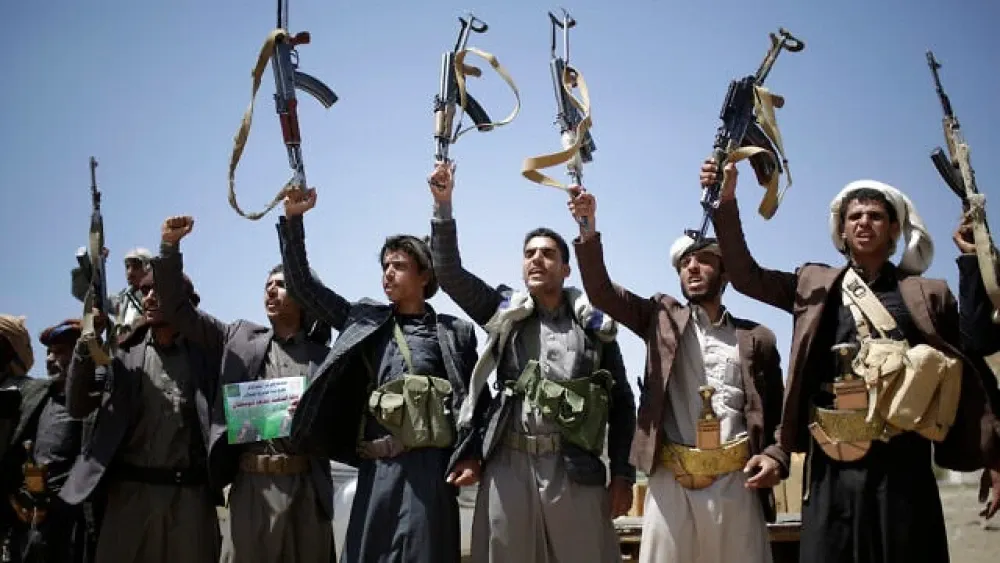 By: Khaled Alyemany On August 24, 2025, Israel escalated its strategy by targeting Houthi leadership in Sanaa following a Houthi drone attack on Israel, marking a significant shift in the Yemen conflict. Why it matters: This represents a strategic pivot from traditional warfare to leadership decapitation, aiming to dismantle Houthi command structures. Houthi defiance: Despite the severe blow, the Houthis vow retaliation, maintaining their aggressive posture. International implications: The failure of international mechanisms to block arms flow to the Houthis exacerbates the conflict. To read the full article, click here. | | South Yemen Is Test Case for Post-USAID Humanitarian Relief 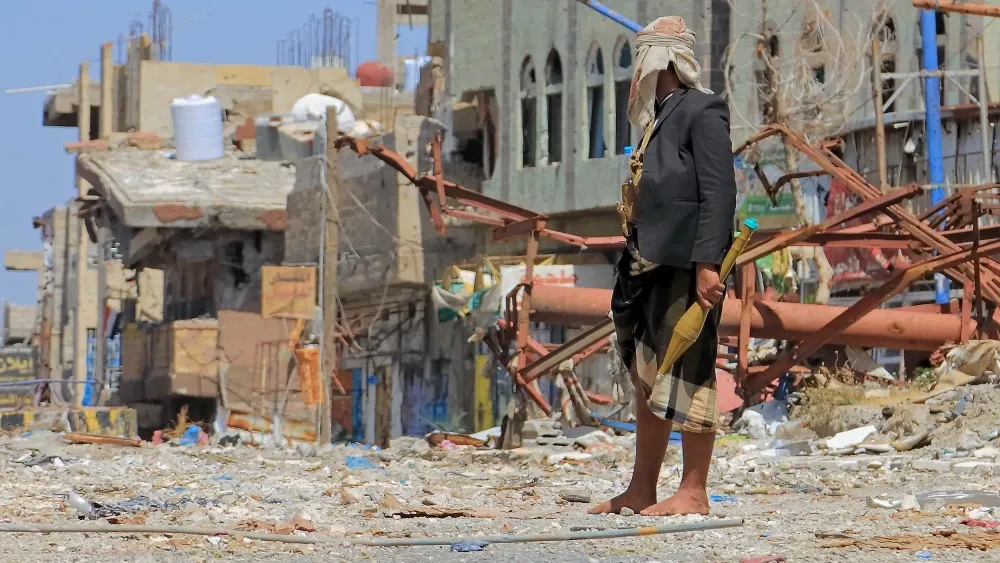 By: Michael Rubin The dismantling of USAID has spotlighted the U.S.'s shifting foreign aid strategy, focusing now on immediate needs amid Yemen's escalating crisis. Why it matters: The Iran-backed Houthis' potential control over Yemen poses a threat to strategic waterways and regional stability. Urgent need for support: Secretary of State Marco Rubio's promise of robust aid must translate into real action. Strategic implications: If the United States does not support its local partners in Yemen, it may find that it no longer has any meaningful hooks upon which it can hang its anti-Houthi policies. To read the full article, click here. | | Sweida's Druze Defy Damascus in a Fight over Self-Determination, Their Fate in Syria 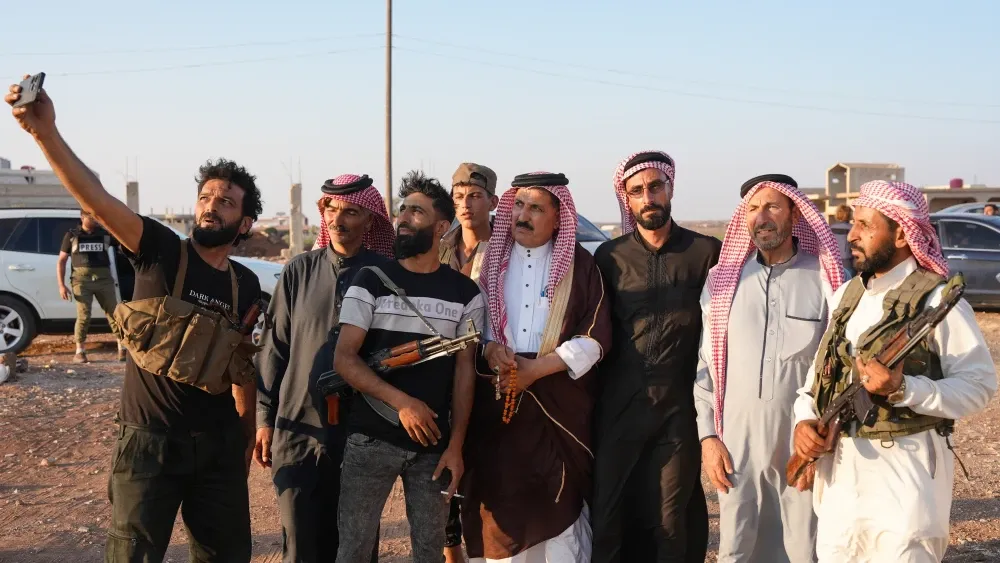 By: Jonathan Spyer The Druze community in Sweida has faced severe violence, prompting calls for self-determination and highlighting the region's complex political landscape. Why it matters: The violence in July resulted in over 1,600 deaths, with international bodies only now recognizing the tragedy's scale. Druze determination: In response, large-scale protests demand Druze self-determination and independence, as local leaders form a new national guard. International dynamics: The Druze call for autonomy raises practical challenges, including the need for external support and recognition. -
Turkey is currently engaged in an energetic effort to transform Damascus into a modern state. If they succeed, and if no one helps increase the capacities of the Druze, Kurds, and other minorities, then a time may come when the Sunni Islamists will succeed in imposing their will over the entire country. -
Sweida's Druze are currently organizing to avoid this fate. This has led to the rarely paralleled sight of an Arabic-speaking population in a neighboring country raising the Israeli flag and thanking the Jewish state for its intervention in their defense. -
It remains to be seen if this proves to be merely a historical curiosity on the road to a new, centralized Syrian regime, or conversely, a sign of things to come. To read the full article, click here. | | The Case for Decentralization in Syria  By: Sirwan Kajjo In the wake of Bashar al-Assad's regime collapse, Syria's future governance structure is hotly contested, with decentralization at the forefront. Why it matters: Local stakeholders advocate for a political structure that grants greater regional autonomy, contrasting with interim authorities' centralized vision. U.S. opportunity: The lifting of sanctions presents a chance for the U.S. to influence Syria's path. Historical perspective: Decentralization is grounded in Syria's past, with early 20th-century frameworks offering a foundation for modern governance. Role of the Kurds: Kurds, who comprise 15 percent of Syria's population, are vocal proponents of decentralization. -
Their governance model in northeast Syria highlights the viability of autonomous regions, offering a blueprint for broader implementation across the country. -
If Syria has a chance at preventing disintegration and preserving its territorial integrity, it must give serious consideration to building a decentralized system that reflects and embraces the country's ethnic, religious, and sectarian diversity. To read the full article, click here. | | A Veteran of the '313 Force' in Syria: Interview 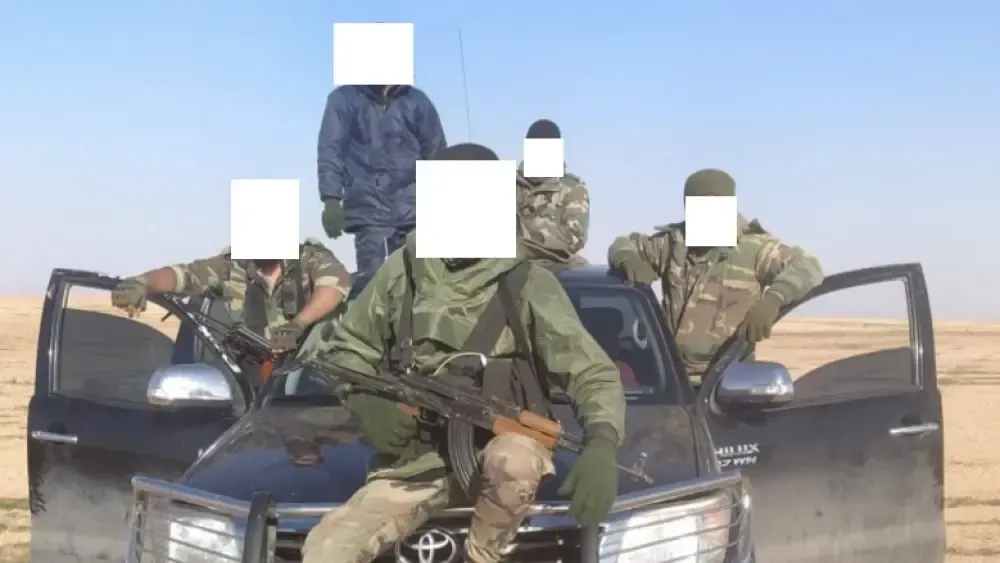 By: Aymenn Jawad Al-Tamimi The "313 Force" was one of the better known Iranian-backed formations in Syria. The information below is drawn from an interview conducted by the author with a person who is from the locality of al-Kafrin (Damascus countryside) and served in the 313 Force, discussing his experiences in the group and his outlook on the present situation. Why it matters: The disbandment of Iranian-backed groups like the 313 Force highlights shifts in Syria's military landscape. Service experiences: The 313 Force offered better conditions than the regular army, with higher pay and more flexible schedules. Current outlook: Despite recent violence, some locals view the state's treatment and economic conditions as improved post-collapse. To read the full interview, click here. | | Interactions with the Israelis in Southern Syria: Interview with a Local in al-Qunaytra 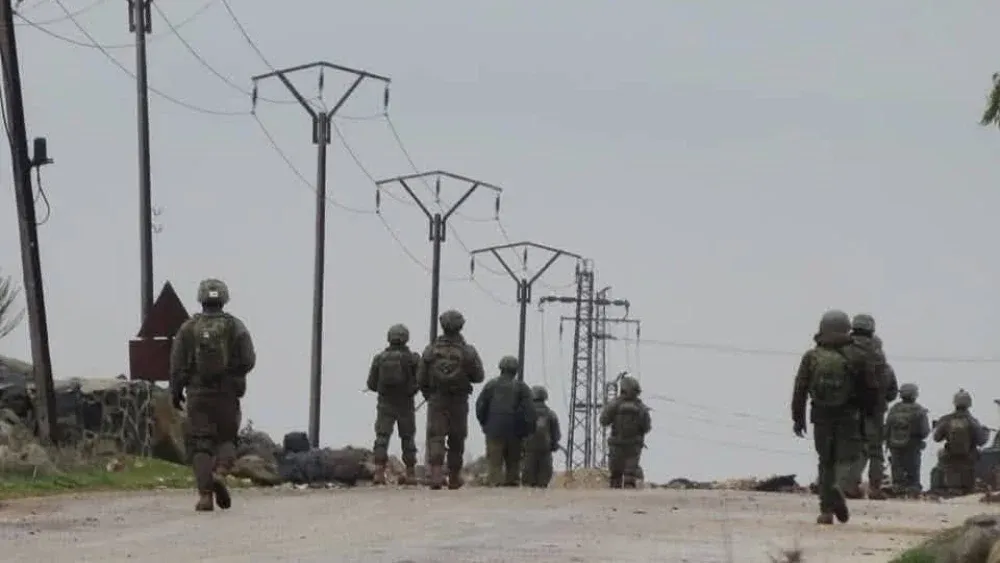 By: Aymenn Jawad Al-Tamimi An interview by the author, conducted with a resident of Kudna, near the Israeli-controlled Golan Heights, reveals mixed sentiments about Israeli actions and the broader geopolitical context. Why it matters: Israeli incursions and the "carrot-and-stick" approach shape local views, affecting the dynamics of normalization and potential insurgencies. Local insights: "The people see that the Israeli army is distributing relief aid for the people, and there is a slice of the community that says: 'You must not take this aid.' But the majority are in need and take it." Future outlook: The interviewee supports normalization between Syria and Israel, seeing it as a rational step forward despite complexities. -
When asked if he supports peace between Syria and Israel, he answers: "Frankly yes, by God. Don't get angry with me if you are against this idea, but we had a regime ruling for 50 years and it was in opposition to Israel, and what were the results? Let us look at the matter from the standpoint of reason, right? In Israel, all the sects live, right? Regardless of events that are happening, but there are hidden things happening on the scene. In my view, peace is inevitably coming, in my opinion." -
His message to the Syrian government: "It must reach a solution with Israel just like the rest of the Arab states. The solution is mutual agreement on protection of the borders and signing agreements that guarantee peace for the two sides and joint cooperation to protect the borders in principle." To read the full interview, click here. | | | | | We appreciate your continued support for the Middle East Forum as we deliver critical analyses on Middle Eastern affairs. If you found this edition of the Dispatch useful, please share it with others and be sure to let us know your thoughts on our coverage via the comments feature. Sincerely, Winfield Myers
Managing Editor, Middle East Forum
Director, Campus Watch | | | | Was this edition useful?  

Your email will be recorded and shared with the sender |        MEF, an activist think tank, deals with the Middle East, Islamism, U.S. foreign policy, and related topics, urging bold measures to protect Americans and their allies. Pursuing its goals via intellectual and operational means, the Forum recurrently has policy ideas adopted by the U.S. government.
Copyright © 2024 Middle East Forum, All rights reserved.
Our mailing address is:
Middle East Forum
1650 Market Street, Suite 3600
Philadelphia, PA 19103 | | | | | Powered by 
| | This email was sent by Middle East Forum via Axios HQ | | | |
0 коммент.:
Отправить комментарий